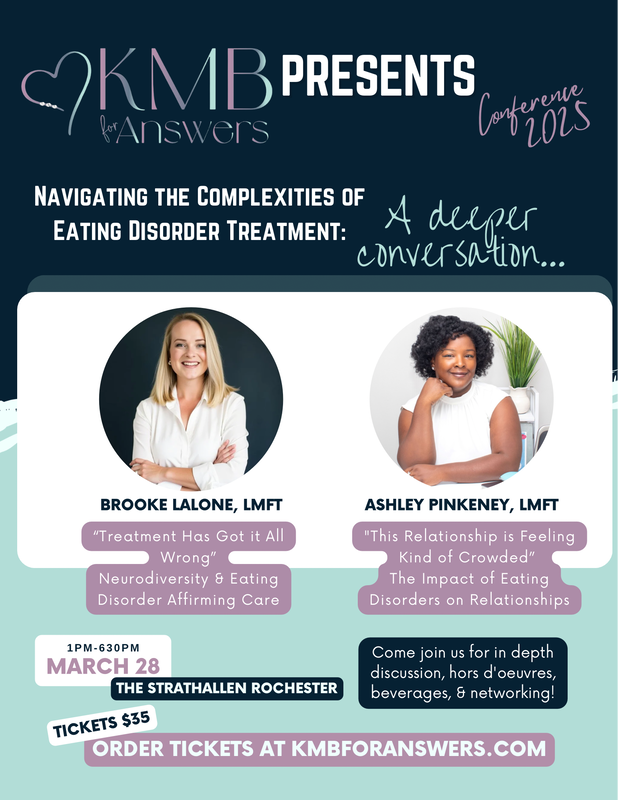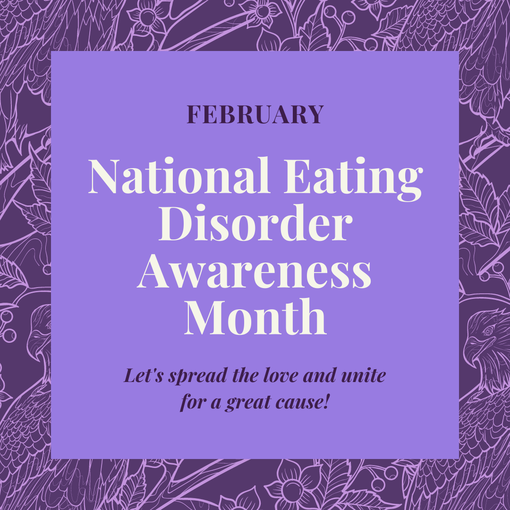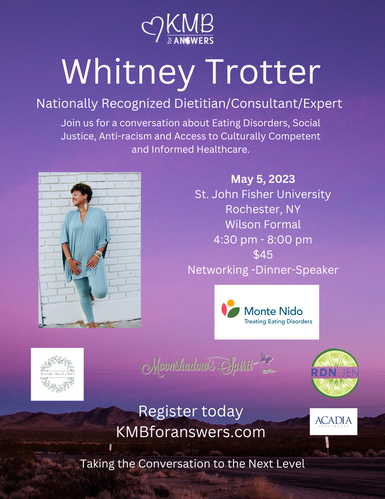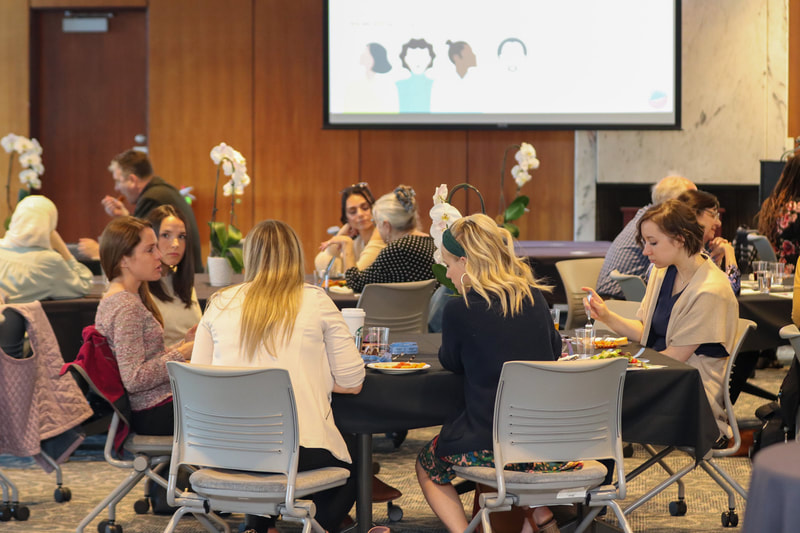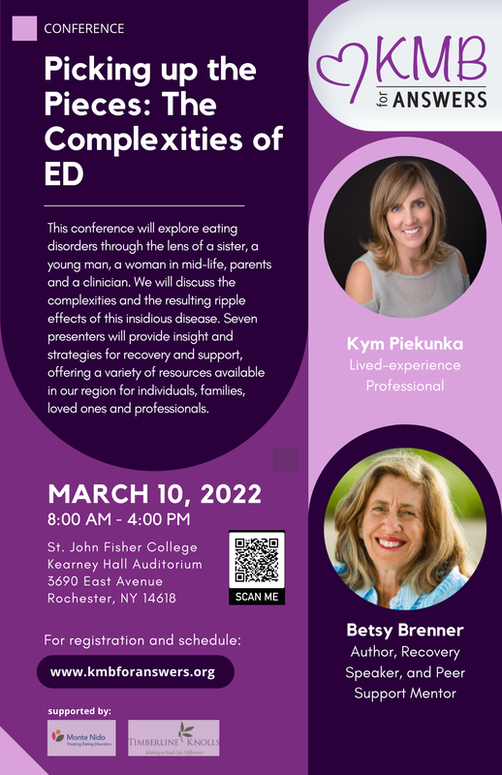2024 Events
Reconnect & Heal with Yoga
Fall 2024 New Session
September - November
Thursday as Scheduled
6:15pm - 7:15pm
September - November
Thursday as Scheduled
6:15pm - 7:15pm
National Eating Disorder Awareness
February
February is Awareness month with National Eating Disorder Awareness week being February 21-27, 2022.
Often referred to as NEDAwareness Week, the tradition of focusing on eating disorder advocacy and support in the last week of February/first week of March has been observed for over 30 years.
Hosted by NEDA, this week has often involved numerous supportive, inspiring, and informative opportunities in communities around the United States and the world.
Many of these include talks, resource fairs, social media messaging and engagements, and community walks focused on raising awareness and money to finance treatment and research of eating disorders. More information to come.
HISTORY OF NEDA WEEK
The NEDA Week is an initiative that aims to educate people on eating disorders, motivate them with a hopeful message, and allow those who need treatment to gain access to the necessary life-saving resources. The NEDA Week is an initiative taken by a non-profit organization called the National Eating Disorders Association, which is devoted to preventing eating disorders and increasing awareness of the dangers thereof, and providing resources to those in need. During this week, health care providers, eating disorder professionals, social workers, and individuals educate others about this mental health issue. According to the American Psychiatric Association, there are five different types of eating disorders, Anorexia Nervosa, Bulimia Nervosa, Binge Eating Disorder (B.E.D.), Avoidant Restrictive Food Intake Disorder (A.R.F.I.D.), and Other Specified Feeding or Eating Disorder (O.S.F.E.D.). Although there are many main factors like genetics that are responsible for eating disorders, they can commonly co-occur with other mental health issues like anxiety, major depression, obsessive-compulsive disorder, and social phobia. Some of the possible symptoms associated with eating disorders include constantly feeling cold, fainting, sleeping issues, weight fluctuations, dizziness, weakness, and impaired immunity. Each year, NEDA Week is celebrated with a theme. Last year, the theme was to invite “Every Body to Have a Seat at the Table.” It highlighted the suppressed thoughts and suppressed conversations about disordered eating experienced by marginalized individuals and communities. So, this NEDA Week let’s come together and educate others about this issue and help others who are in need. Together, we can!
Often referred to as NEDAwareness Week, the tradition of focusing on eating disorder advocacy and support in the last week of February/first week of March has been observed for over 30 years.
Hosted by NEDA, this week has often involved numerous supportive, inspiring, and informative opportunities in communities around the United States and the world.
Many of these include talks, resource fairs, social media messaging and engagements, and community walks focused on raising awareness and money to finance treatment and research of eating disorders. More information to come.
HISTORY OF NEDA WEEK
The NEDA Week is an initiative that aims to educate people on eating disorders, motivate them with a hopeful message, and allow those who need treatment to gain access to the necessary life-saving resources. The NEDA Week is an initiative taken by a non-profit organization called the National Eating Disorders Association, which is devoted to preventing eating disorders and increasing awareness of the dangers thereof, and providing resources to those in need. During this week, health care providers, eating disorder professionals, social workers, and individuals educate others about this mental health issue. According to the American Psychiatric Association, there are five different types of eating disorders, Anorexia Nervosa, Bulimia Nervosa, Binge Eating Disorder (B.E.D.), Avoidant Restrictive Food Intake Disorder (A.R.F.I.D.), and Other Specified Feeding or Eating Disorder (O.S.F.E.D.). Although there are many main factors like genetics that are responsible for eating disorders, they can commonly co-occur with other mental health issues like anxiety, major depression, obsessive-compulsive disorder, and social phobia. Some of the possible symptoms associated with eating disorders include constantly feeling cold, fainting, sleeping issues, weight fluctuations, dizziness, weakness, and impaired immunity. Each year, NEDA Week is celebrated with a theme. Last year, the theme was to invite “Every Body to Have a Seat at the Table.” It highlighted the suppressed thoughts and suppressed conversations about disordered eating experienced by marginalized individuals and communities. So, this NEDA Week let’s come together and educate others about this issue and help others who are in need. Together, we can!
Pearls for Katie
January 26th is Katie's Birthday, to honor her memory we create a social media event requesting everyone to wear their pearls, earrings, bracelets, necklace, ring or all of the above. Katie loved to wear pearls, in almost every picture she is wearing pearls. Every time I wear pearls, I feel a special connection. Please send us a picture of you wearing your pearls and raise awareness by sharing Katie's story. Awareness and understanding will lead to early intervention, which will lead to better outcomes.
Facebook, [email protected] or Instagram.
Facebook, [email protected] or Instagram.
PAST EVENTS
Whitney Trotter
May 5, 2023
Whitney is dualy licensed as a Registered Dietitian, Nurse, and yoga instructor and is currently working on her doctorate degree to become a psychiatric nurse practitioner. Whitney has over ten years of experience working as a registered dietitian serving various communities, such as the HIV/AIDS community, as well as working in the eating disorder field. Whitney also previously worked at a Level 1 Pediatric Trauma Center as a Pediatric emergency room nurse. In addition to working as an RDN and RN, Whitney has served as a member of her county's Rape Crisis Center. Her work at the Rape Crisis Center equipped her to co-found an anti-trafficking organization Restore Corps, where she now provides medical training to the community focusing on human trafficking response. Whitney's career in the Eating Disorder field includes being a former Nutrition and Nursing director of a Residential, PHP, and IOP center. Whitney is also the owner/founder of Bluff City Health, a private practice specializing in bridging the gap in the eating disorder field of equitable care and social justice. This past year Whitney created the first-ever BIPOC Eating Disorders Conference and started #bipoceatigndisordersawarenessweek.
https://whitneytrotter.com/
https://whitneytrotter.com/

